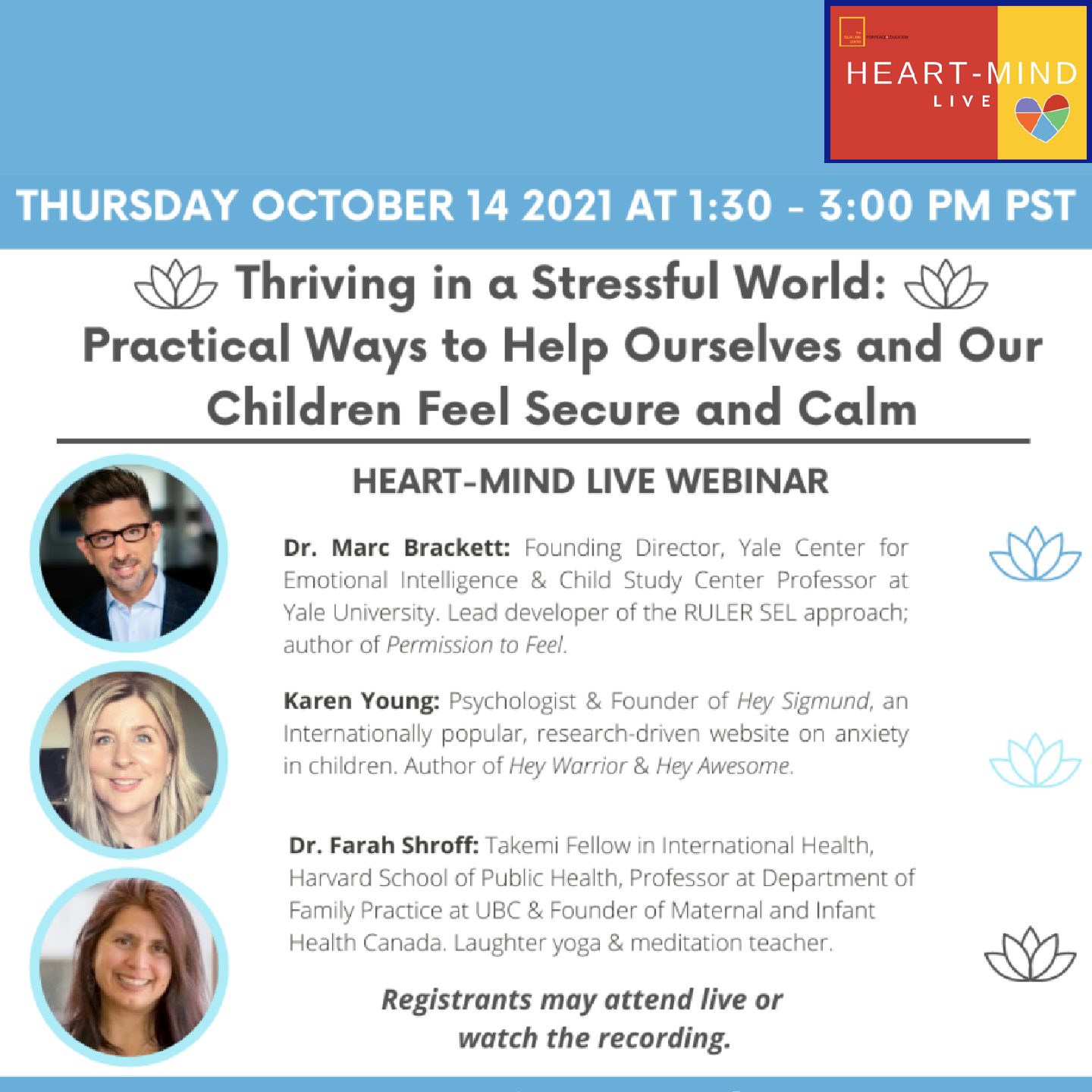As we emerge from the pandemic, stressors are heightened, and anxiety is an ever more common experience. We know from research that stress is “contagious” between adults and kids; therefore addressing the impacts of stress on ourselves is intertwined with our capacity to support the young people in our care. How can we help ourselves and our children to develop a foundation of security and calmness to prevail through the effects of this storm?
I’ll be joining with Dr Marc Brackett and Dr Farah Shroff, as we explore the role of emotion regulation and the function of anxiety in our lives. Participants will learn ways to help express and regulate their own, and their children’s, emotions, even when our world may feel a little scary and stressful. Panelists will also share practical and holistic strategies that can be most effective in fostering well-being for both ourselves and children.
In this webinar which will be hosted by The Dalai Lama Center for Peace and Education, you will have the opportunity to glean creative, evidence-informed takeaways to help you and the children in your care build resilience and foster a sense of security and calmness. Join us for this 1 ½ hour session, including a dynamic Q&A period.
VIEWS
Thriving in a Stressful World: Practical Ways to Help Ourselves and Our Children Feel Secure and Calm


